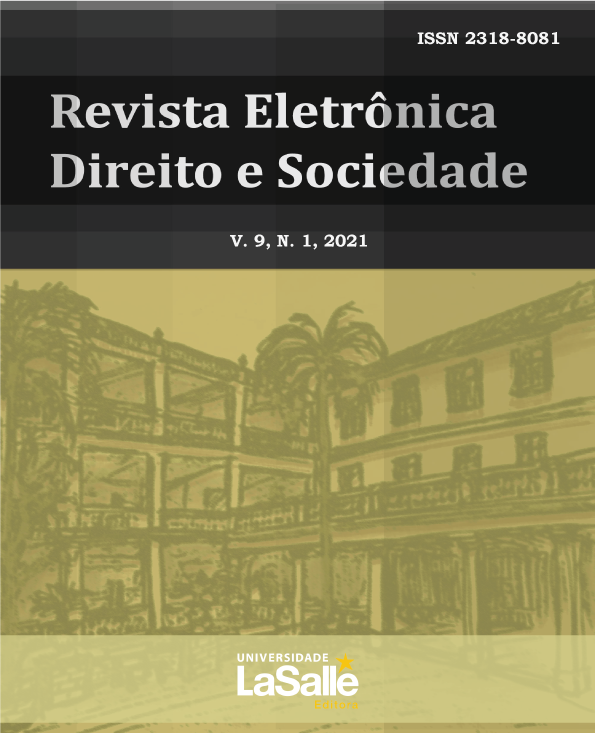Pregnant and postpartum women imprisoned after the Early Childhood Act: a case analysis
DOI:
https://doi.org/10.18316/redes.v9i1.5561Keywords:
encarceramento feminino, Lei de Primeira Infância, maternidade, sistema penitenciárioAbstract
Este trabalho visa analisar as condições de encarceramento e seus efeitos para as mulheres grávidas presas na Penitenciária Talavera Bruce e as puérperas encarceradas com seus bebês na Unidade Materno Infantil, após a edição da Lei de Primeira Infância, que institui medidas desencarceradoras para gestantes e mulheres com filhos de até 12 anos. Os dados apresentados são resultado de pesquisa empírica qualitativa, realizada por meio de entrevistas semi-estruturadas, que ocorreram entre novembro de 2017 e fevereiro de 2018, pouco mais de um ano e meio após a edição da referida norma. Partiremos da análise de casos concretos para discutir questões mais gerais relacionadas ao encarceramento feminino, como seu impacto na saúde dos bebês, tráfico de drogas, situação das estrangeiras, saúde mental, violência e pobreza. Assim, poderemos refletir sobre os limites da aplicação da Lei de Primeira Infância em relação aos seus objetivos, e a necessidade de se pensar em alternativas ao punitivismo para lidar com conflitos sociais.
Downloads
Published
Issue
Section
License
Authors who submit their manuscripts for publication in the “REDES” Magazine agree to the following terms:
The authors claim to be aware that they retain copyright by giving “REDES” the right to publish.
The authors declare to be aware that the work submitted will be licensed under the Creative Commons Non-Commercial Attribution License which allows article sharing with acknowledgment of authorship and publication in this journal.
The authors declare to be aware that by virtue of the articles published in this journal have free public access.
The authors declare, under the penalty of the law, that the text is unpublished and original and that they are aware that plagiarism has been identified, plagiarized authors will be informed - willingly, to take legal action in the civil and criminal sphere - and, plagiarists will have their access to the magazine blocked.
The authors state that - in case of co-authoring - all contributed significantly to the research.
Authors are obliged to provide retractions and (or) corrections of errors in case of detection.
The authors are obliged not to publish the text submitted to “REDES” in another electronic journal (or not).
The Electronic Journal Law and Society - REDES - is licensed under a Creative Commons License. Attribution-NonCommercial 4.0 International.Based on work available at "http://revistas.unilasalle.edu.br/index.php/redes/about/submissions#copyrightNotice".
Permissions in addition to those granted under this license may be available at http://creativecommons.org/.

